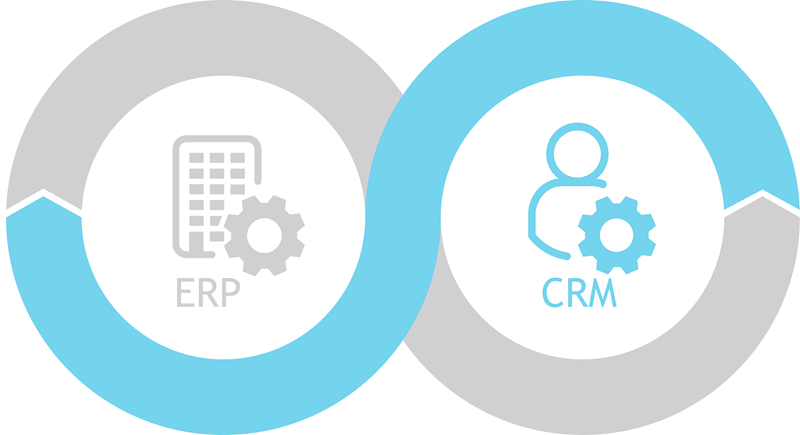Nowadays, all business owners look forward to using the best of technology to improve their performance and growth and digitally transform their businesses. Herein, ERP and CRM can be proven to be useful tools. However, these two are partly overlapping platforms, and there is a lack of clarity about the difference between these two. That’s why it is important for every business leader to understand the unique differences between ERP and CRM before choosing one.
CRM
CRM is a platform primarily used for managing the existing customer relationships and nurturing the leads. There is a wide range of CRMs (software systems for customer relationship management) available in the market for use cases such as social media management, online advertising platforms, email management, and others that constitute the overall CRM suite for businesses. Sales teams are usually the biggest users of CRM as they need to constantly monitor the data and leads. However, as their needs are becoming diverse, they need advanced CRM solutions for devising effective sales campaigns.
One of the core tasks of CRM software is to share data related to contacts, customer behaviour, communication trails, organisational data storage, and marketing, etc., with various departments.
ERP
ERP is an enterprise-wide platform that can take care of all the business operations like managing company payroll and taking stock of inventory and raw materials. It helps in managing all the tasks within the organisation as well as supply chain. The rising complexity of business operations and digitisation has made it necessary for ERPs to evolve from the conventional on-premises systems to advanced software like cloud-based ERP that can be used in multiple ways.
Companies based in Singapore and other countries should prefer ERP software with the following complementary module integrations:
- Finance and accounting
- Supply chain management
- Enterprise asset management
- Project management
- Production and manufacturing
- Quality management
- HR & Payroll
Using an advanced enterprise resource planning solution would give businesses a wide range of operational advantages to cover all the aspects of operations. These benefits include:
- Power of one – The ideal ERP software would be built from the scratch using a single Codebase. It would ensure that all the components of the ERP would work seamlessly with each other.
- Power of cloud – Cloud ERP software can lead to significant cost savings as it requires zero capital expenditure on setting up, and companies can leverage it through pay-for-use subscription plans.
- Power of Mobility – The cloud ERP solution would offer 24/7 connectivity by offering real-time insights on the go to all the teams irrespective of their location.
- Flexibility – Cloud ERP solutions are easily scalable and constantly upgraded to ensure optimum functionality over the years.
- Integrations – Leading cloud ERP solutions can offer complete integration of various related applications across industries such as transportation and logistics, professional services, manufacturing, equipment rentals and service, EPC, energy and utilities.
- Contextual awareness – The right solution would be an intelligent AI-powered solution which is contextually aware and can share relevant real-time information to users based only on their role and security privileges. This ensures that there is complete data security and unauthorised personnel don’t get access to sensitive company data.
Conclusion
Modern ERP systems can also integrate customer service and sales functions, and these are two areas which overlap with the functioning of CRMs as well. The ERPs would enable management of customer data, creation of marketing campaigns, creation of quotations, and generation of sales orders. However, these are functions that are better managed by CRMs as they have more comprehensive features for these functions.
Ideally, for a company looking for ways to optimize and integrate various IT solutions or software, an ERP or asset management system would be a better option. However, for companies looking for ways to boost their marketing and customer service efforts, CRM would be the best choice.





Be First to Comment